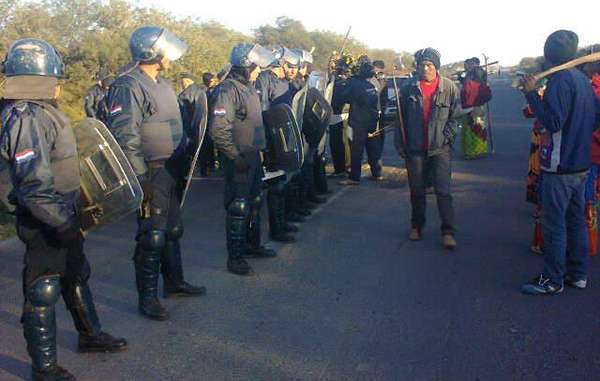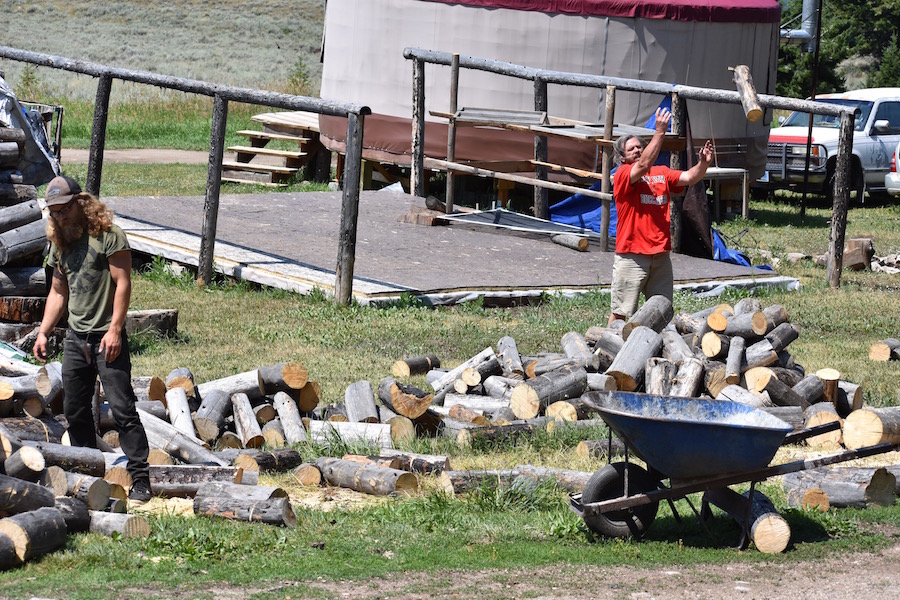
by Deep Green Resistance News Service | Aug 28, 2017 | Toxification
Peak oil extraction has passed and extraction will decline from this point onward. No industrial renewables are adequate substitutes. Richard C. Duncan sums it up in his “Olduvai Theory” of industrial civilization. Duncan predicted a gradual per capita energy decline between 1979 and 1999 (the “slope”) followed by a “slide” of energy production that “begins in 2000 with the escalating warfare in the Middle East” and that “marks the all-time peak of world oil production.” After that is the “cliff,” which “begins in 2012 when an epidemic of permanent blackouts spreads worldwide, i.e., first there are waves of brownouts and temporary blackouts, then finally the electric power networks themselves expire.”34 According to Duncan, 2030 marks the end of industrial civilization and a return to “global equilibrium”—namely, the Stone Age.
Natural gas is also near peak production. Other fossil fuels, such as tar sands and coal, are harder to access and offer a poor energy return. The ecological effects of extracting and processing those fuels (let alone the effects of burning them) would be disastrous even compared to petroleum’s abysmal record.
Will peak oil avert global warming? Probably not. It’s true that cheap oil has no adequate industrial substitute. However, the large use of coal predates petroleum. Even postcollapse, it’s possible that large amounts of coal, tar sands, and other dirty fossil fuels could be used.
Although peak oil is a crisis, its effects are mostly beneficial: reduced burning of fossil fuels, reduced production of garbage, and decreased consumption of disposable goods, reduced capacity for superpowers to project their power globally, a shift toward organic food growing methods, a necessity for stronger communities, and so on. The worst effects of peak oil will be secondary—caused not by peak oil, but by the response of those in power.
Suffering a shortage of fossil fuels? Start turning food into fuel or cutting down forests to digest them into synthetic petroleum. Economic collapse causing people to default on their mortgages? Fuel too expensive to run some machines? The capitalists will find a way to kill two birds with one stone and institute a system of debtors prisons that will double as forced labor camps. A large number of prisons in the US and around the world already make extensive use of barely paid prison laborers, after all. Mass slavery, gulags, and the like are common in preindustrial civilizations. You get the idea.
Featured image: Mogolokwena Platinum Mine, South Africa

by Deep Green Resistance News Service | Aug 24, 2017 | Biodiversity & Habitat Destruction
Featured image: There have been confrontations between the Ayoreo and the Paraguayan authorities in recent years, as the tribe have protested against the theft and destruction of their land.© GAT/ Survival
by Survival International
Landmark talks between the Paraguayan government and a recently contacted tribe have yet to reach an agreement, allowing rampant deforestation to continue. Some members of the tribe are uncontacted, and live in a rapidly shrinking island of forest.
The talks began six months ago after a petition from the Ayoreo tribe to the Inter-American Commission on Human Rights, an influential body which holds governments in the Americas to account on human rights issues. The Ayoreo have been claiming the right to their ancestral land since 1993.
Halfway through the year-long process, however, and little concrete action has been taken, leading to fears for the tribe’s long-term survival. A technical study is due to be carried out to assess the feasibility of securing the land.
The government has also failed to stop the rapid logging of land owned by the Ayoreo, despite a 2016 emergency order from the Inter-American Commission to protect the uncontacted Indians and halt deforestation.

Aerial photograph showing the devastation that logging has brought to Ayoreo land. © Survival
Background briefing
– The Ayoreo live in the Chaco, which is the largest forest in South America outside the Amazon and has recently been recorded as having the highest rate of deforestation in the world. Experts estimate that the forest lost almost 10 million trees in January 2017.
– This poses a deadly threat to the Ayoreo, who face catastrophe unless their land is protected.
– Many members of the Ayoreo tribe were forcibly contacted by missionaries between 1969 and 1986. Continual land invasions forced them to abandon their homes. Many have since suffered from disease, including a TB-like illness, poverty, and exploitation on the fringes of mainstream Paraguayan society.
– Recently contacted members of the tribe spent years fleeing from bulldozers, which they called “beasts with metal skin.” The machines are used by loggers to clear paths for cutting trees.
– The petition which finally brought the Paraguayan government to the negotiating table is called Petition 850-15. It features a claim for the restitution of Ayoreo land.
– In February 2016, the Inter-American Commission issued an emergency order (MC 54-13) calling for the protection of uncontacted Ayoreo and their forests. Although this was in response to a separate petition submitted by the Ayoreo, the orders are to also be discussed during the talks.
– The local support group GAT, and indigenous organization OPIT, have played an important role in lobbying the government, and after months of warning, finally pressed them to investigate the logging in July 2017. It remains to be seen whether the deforestation will be stopped and the perpetrators brought to justice.

Most of the Ayoreo have been forced out of the forest. They have since been fighting for their land rights. © Survival
Survival International is calling for a complete halt to logging on Ayoreo land, and for the return of all lands which have been titled to ranching companies.
Uncontacted tribes are not backward and primitive relics of a remote past. They are our contemporaries and a vitally important part of humankind’s diversity. Where their rights are respected, they continue to thrive.
They are the best guardians of their environment. And evidence proves that tribal territories are the best barrier to deforestation.
Survival’s Director Stephen Corry said: “The Ayoreo have already been waiting more than twenty years for their lands to be protected. All this time they’ve seen their forests destroyed about them. They hoped the Inter-American Commission’s intervention would finally push the government to act, but that hope too has proved an illusion. Tragically, it seems that Paraguay’s government is so firmly tied to the ranchers and landowners who control the levers of power that nothing short of massive public pressure will move them to act.”

by Deep Green Resistance News Service | Aug 22, 2017 | Strategy & Analysis
Editor’s note: This is the first installment in a multi-part series. Browse the New Park City Witness index to read more.
by Will Falk / Deep Green Resistance
In Park City, the task is clear: Stop climate change, or the snow stops. Snowpack is the region’s freshwater supply and water is life. So, stop climate change or the community will lose life.
This is not news to most Parkites. And, thankfully, many Parkites have taken, at least, some kind of action. Park City Municipal Corporation hopes to achieve carbon neutrality, for the whole community, by 2032. An electric bike program was recently introduced, and electric city busses now run routes through town, in an effort to reduce carbon emissions. In a truly amazing display of community generosity, $38 million was raised to protect Bonanza Flats from development.
Meanwhile, there are a growing number of us in Park City, and across the country, who have lost faith in the traditional tactics employed by the environmental movement for creating change.
We voted. Many of us helped Barack Obama gain the presidency only to see American natural gas production increase by 34% and crude oil production increase by 88% since George W. Bush’s final year in office. Our votes couldn’t stop Donald Trump from gaining the presidency and everyday brings more news of his insanity. The EPA is gutted. The United States pulled out of the Paris Climate Accord. And, climate change deniers occupy many of the federal government’s most powerful positions.
We reduced, reused, and recycled. Then, we learned that the general consensus amongst climate scientists is that developed nations must reduce greenhouse gas emissions 80% below 1990 levels by 2050 to avoid runaway climate change. While it was still funded, the EPA reported that small businesses and homes accounted for 12% of total US greenhouse gas emissions while personal vehicles accounted for less than 26% of total US emissions. Based on these numbers, we realized that even if every small business and home in America reduced its emissions to zero and each American drove cars that emitted no greenhouse gas, the United States wouldn’t even come close to that 80% goal.
We participated in traditional conservation efforts. We helped to save Bonanza Flats from the bulldozers and chainsaws. But, we have not yet saved Bonanza Flats from the droughts, the wildfires, the fungus-killing aspens, and the pine beetles all made worse by climate change.
We are ready for escalation. We are ready for direct action.
**
Beneath the positivity, the small victories, and the feel-good atmosphere characterizing life in a mountain town like Park City, a desperation quietly grows. Climate change worsens, mass extinction intensifies, and natural communities collapse. Parents and grandparents fear for the futures of their children and grandchildren. Older generations approach the end of their lives worrying that they failed the younger generations. Younger generations wonder if they truly are disempowered, or if disempowerment is an illusion ensured by the apathy they’ve been labelled with.
For the most part, the desperation remains unacknowledged, unnamed, and repressed. Removed from the violence producing our material comforts and granting us the ability to live in a place like Park City, many never feel the desperation. Those who do doubt the authenticity of their intuition and wonder if the desperation is a sign of mental illness, proof that something is wrong with them, or a character flaw. When the desperation is expressed, those who point it out are called alarmists, conspiracy theorists, and sensationalists. When the reality described is too obvious to ignore, those who describe it are accused of causing paralysis and depression.
Nevertheless, the planet’s health is critically threatened. And, things are getting worse. We must act urgently and decisively. For those of us who know this, the question becomes, “How do we encourage others to act with the necessary urgency and decisiveness?”
***
In 2012, the Summit Land Conservancy published the second edition of Park City Witness: A Collection of Essays and Artwork Celebrating Open Space. In her introduction, Cheryl Fox – Executive Director of the Summit Land Conservancy – wrote, “Today we face unprecedented challenges to our natural environment. Solving this problem is the moral challenge of our century. The question we must ask is not ‘what can I do?’ but ‘what is the right thing to do?’”

I completely agree with her. Several months before I read her words, I wrote in my essay “Park City is Still Damned,” “Don’t ask, ‘What can I do?’ Instead ask, ‘What needs to be done?’”
So, what is the right thing to do? What needs to be done? Ms. Fox concluded her introduction with, “I encourage you to read this book. Then go out to the trails, the mountains, the creek that you have helped to save. Watch for angels or demons and the messages they send, and then bear witness…”
It’s been five years since Summit Land Conservancy published its celebration of open space in Park City Witness. In that time, the list of the indicators of ecological collapse has only grown longer. Witnesses, testifying in court, take an oath to tell the truth, the whole truth and nothing but the truth. There are angels on the trails, the mountains, and in the creeks. But, there are demons, too. If we only bear witness to beauty, to optimism, and to celebration, we are liars. Telling the whole truth demands that we confront the demons, no matter how horrifying they are.
I have devoted my writing career to two principles: The land speaks. And, I have a responsibility to communicate what the land says as best I can. I hear the land speak of beauty. I also hear the land speak of horror. In Park City, while most writers and most artists focus on stories of beauty, who will confront the stories of horror?
We need new Park City witnesses. I cannot ask anyone to do what I myself am not willing to do. So, I commit, publicly, to being a new Park City witness. One who lives as honestly as possible with two realities. There is beauty and there is horror. The horror will consume the beauty if it is not confronted, described, and resisted.
To give my commitment substance, I have acquired a reliable vehicle, spent weeks researching, cleared my schedule, and formed a plan to visit places in Park City and across Utah where horror threatens to overwhelm beauty. These are places like the planned site for the Treasure Hill development, the Uintah Basin, oil refineries in North Salt Lake, the White Mesa uranium mill, and the coal mines in Price. My experiences will form a place-based series. Each essay will grow organically from the natural community it is written from. I welcome community discussion, comments, and feedback. The Deep Green Resistance News Service has graciously agreed to publish the writing this journey produces and you can follow along here. Please feel free to contact me.
My purpose is simple: In each place, I will search for beauty and I will search for horror. Then I will ask of that place, “What do you need?” I will listen for as long as I need to, knowing that the land rarely speaks in English and rarely observes a time recognizable by common human patience. After this, I will write. I will write as honestly as possible.
I hope to give a voice to those who feel the desperation. I hope to comfort those who feel crazy for the intensity of their concern. I hope to demonstrate that their concern is justified. I hope to catalyze the courage we so desperately need to resist effectively.
I hope to be a new Park City witness.
To repost this or other DGR original writings, please contact newsservice@deepgreenresistance.org

by Deep Green Resistance News Service | Aug 20, 2017 | White Supremacy
Featured image: majka czapski/flickr/cc
by Robert Jensen / Common Dreams
Now that the violence in Charlottesville has forced “white supremacy” into our political vocabulary, let’s ask an uncomfortable question: “When will the United States transcend white supremacy?”
My question isn’t, “What should we do about the overt white supremacists who, emboldened by Trumpism’s success, have pushed their way back into mainstream politics?” I want to go beyond easy targets to ask, “When will U.S. society—not just neo-Nazis and the Klan, but the whole country—reject all aspects of white supremacist ideology and take serious steps toward rectifying the material inequality justified by that ideology?”
The answer is obvious: Never.
There’s no evidence the dominant culture is interested. The wealth—in fact, the very existence—of the United States is so entwined in the two foundational racialized holocausts in our history that transcending white supremacy requires not only treating people of color differently, but understanding ourselves in new and painful ways. To transcend white supremacy, white America would have to come to terms with the barbarism of our history and our ongoing moral failures.
If that seems harsh, heartless, or hopeless, let’s start with history.
The United States is the wealthiest nation in the world. The acquisition of the land base of the country and our path to industrialization and that wealth are inextricably tied to the genocide of indigenous people and African slavery. Those processes and practices, driven by dreams of domination and the nightmare of unchecked greed, were justified by white supremacist ideology. The result: millions dead, the lives of millions more impoverished, and entire cultures ravaged and sometimes destroyed.
Yes, the story of the United States also includes the quest for freedom and perseverance in the face of adversity, hard work and ingenuity. We love to tell those stories, while the barbarism typically is treated as a footnote. But there would be no United States as we know it without the genocide of indigenous people that cleared the land of “the merciless Indian Savages,” as the Declaration of Independence described the native population standing in the way of a new nation. Slave-grown cotton provided a crucial raw material and equally crucial export earnings that aided U.S. economic expansion and spurred industrial development in the North.
White supremacy defines not just the states of the Confederacy, but the whole country. I was born and raised in North Dakota, and I’ve lived the past 25 years in Texas. Which is more virulent, the overt anti-Indian racism I grew up with or the overt anti-black racism I live around today? They’re about the same. What about the unspoken sense of superiority of polite white society? About the same in both places, whether it’s conservative Fargo, ND, or progressive Austin, TX.
Why do these attitudes persist? Because to face the reality of our barbaric history would be to admit that our wealth—our very existence—depends on our racialized holocausts, and hence our claim to that land and wealth is suspect. It doesn’t matter if any of my ancestors participated in the genocide (they were more recent immigrants) or owned slaves (they didn’t). What matters is whether we can tell the truth and remedy, to the degree possible, the consequences of that historical barbarism and the contemporary practices that flow from it. Being anti-racist means supporting anti-racist policies.
Here’s one easy example: Raise taxes, primarily on the upper middle class and wealthy, to fund public schools equally. De facto racial segregation in housing means school segregation, and racialized wealth disparities mean racialized inequality in education. So get serious about giving every school the funding needed, channeling extra resources to struggling schools until they reach parity. Assign the most experienced teachers to the schools that have been neglected; let the new teachers handle the rich kids. Raise taxes, and no whining.
School equity would be one small step toward an honest reckoning, and we don’t even do that. I can’t say with certainty that white America will never face this honestly, but in my life I’ve seen no indication of a general interest in a public discussion at this level.
Not surprisingly, when I ask, “When will the United States transcend white supremacy?” the responses vary widely. Indigenous and black people often chuckle, not because the subject is funny but because the answer—never—is so obvious. In general, people of color are understandably skeptical about the commitment of white America, recognizing the clash between the good intentions of many white people and those same white people’s reluctance to endorse the easy steps, let alone the radical social change, necessary to transform a society.
But the only people who routinely get indignant at the question are other white people. They’re the ones who accuse me of being harsh, heartless, and hopeless. Perhaps I am all three, but even if that’s the case, the question hangs uncomfortably: When will we transcend white supremacy?
This work is licensed under a Creative Commons Attribution-Share Alike 3.0 License
Robert Jensen is a journalism professor at the University of Texas at Austin and board member of the Third Coast Activist Resource Center in Austin. He is the author of Arguing for Our Lives: A User’s Guide to Constructive Dialogue (City Lights, 2013); All My Bones Shake: Seeking a Progressive Path to the Prophetic Voice, (Soft Skull Press, 2009); Getting Off: Pornography and the End of Masculinity; The Heart of Whiteness: Race, Racism, and White Privilege; Citizens of the Empire: The Struggle to Claim Our Humanity; and Writing Dissent: Taking Radical Ideas from the Margins to the Mainstream. He can be reached at rjensen@uts.cc.utexas.edu

by Deep Green Resistance News Service | Aug 18, 2017 | Movement Building & Support
by Buffalo Field Campaign
* HELP US PREPARE FOR WINTER! *
JOIN BFC FOR WOOD CUT WEEK, SEPTEMBER 1-4, 2017!
It’s hard to imagine right now that winter is not very far away, but it comes quickly to Yellowstone country, and not too long from now the home fires will be burning. At Buffalo Field Campaign, wood is our only heat source for our living quarters and it takes a lot to keep our many lodges heated. Much of our wood has been gathered, cut, and stacked, but we still have a ways to go and we need your help!

Our annual Wood Cut Week is September 1-4, and we welcome you to join us. Come help BFC finish our wood gathering for the up coming field season. BFC could not exist in this cold climate without our wood and it is tremendous work to get it all in. Mike, Pat, Don, Hanmi, Greg, Scott, Daniel, and Nick have done a lot already and they could sure use some extra hands. If you like hard work and hauling large logs please come help. Room and board will be provided. If you have your own chainsaw, please bring it along, too. Please write to Mike if you plan on attending. The more the merrier! Thank you!
Buffalo Field Campaign
PO Box 957
West Yellowstone, Montana 59758
Phone: (406) 646-0070
Email: media@buffalofieldcampaign.org









